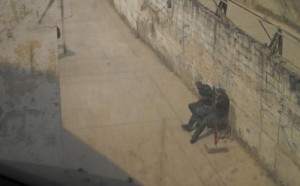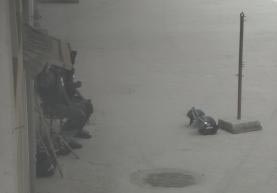
|
On February 13, 2011, Nepal police in riot gear shut down local elections for the leadership of a Tibetan community group. The police action was the latest police harassment of Nepal’s long-staying Tibetan community and underscores Nepalese authorities’ effort to prohibit what it perceives as “anti-China” activities by Tibetans in its territory. U.S. Under Secretary of State for Democracy and Global Affairs, Maria Otero, who serves concurrently as the Special Coordinator for Tibetan Issues, was visiting Kathmandu at the time. During her visit, Otero met with Nepalese officials and reportedly expressed the continued support of the U.S. government for the safety and welfare of Tibetan refugees in Nepal (ICT report, High-level U.S. visit shows commitment to Tibetan refugee issues in Nepal).
The community group, Chushi Gangdruk, principally looks after the welfare of veterans of the Tibetan resistance force that battled the Chinese People’s Liberation Army from 1958 until 1974.
According to ICT sources in Kathmandu, on Sunday, February 13, Kathmandu police raided three locations where voting for the leadership of Chushi Gangdruk was taking place: Swoyambhu, Jawalakhel and Boudha. Regular elections in the Chushi Gangdruk organization have taken place for many decades, and members responsible for the elections worked with care and discretion to avoid provoking authorities. Local police in Boudha who checked on the gathering when voting began at 9:00 a.m. voiced no objection to the proceedings. Nonetheless, around 10:00 a.m., a van arrived at the voting hall carrying police wearing riot-gear, guns and batons, and was accompanied by a truck that is typically used to take people away for detention.
A member of the Chushi Gangdruk election committee was asked to explain the gathering: “We are voting for our local community representatives so that when someone is sick we can take them to the hospital or when someone dies we can take the corpse to the graveyard. We help poor and homeless people, and we clean the streets and look after the environment in our community. We are refugees and not have such a government to look after us. Only community members do these jobs. We are here today, electing our community representatives in a democratic way.”
A police officer involved in the raid told the members of Chushi Gangdruk that Tibetan refugees are not allowed to hold elections for any reason, and that the raid was ordered by the CDO (Chief District Officer).
At this point, it became impossible to carry on voting and a policeman took the ballot box and walked away. When the police officer was asked by the Tibetan election committee member if it would be possible to have the confiscated ballot box returned, the police officer responded that it would be impossible and that the box would be locked away along with the Tibetan ballot boxes that were confiscated last year. Several police officers stayed until 5:30 p.m. presumably to ensure that the election would not resume.
In the two other locations, Swoyambhu and Jawalakhel, the voting had concluded before police arrived at approximately 10:30 am.
On October 3, 2010, Kathmandu police confiscated ballot boxes and shut down voting sites where members of Nepal’s Tibetan community were participating in primary elections for the Tibetan government-in-exile, based in Dharamsala, India (ICT report, Nepalese police seize ballot boxes from Tibetan exile election).
Nepal’s “one China policy” is frequently invoked by authorities as the reason to shut down community activities in the Tibetan community that had previously been allowed, such as the Chushi Gandruk elections and celebrations of the Dalai Lama’s birthday. Many Tibetans believe that Nepalese authorities are working against them at the behest of the Chinese government. The link between China’s aggression against Tibetans and Nepalese police actions has contributed to an environment of fear and insecurity in Nepal’s Tibetan communities. Only Tibetan refugees who arrived in Nepal before 1989 are provided resident status by the Nepal government, a classification that significantly limits their social, economic, political and civil rights. As one Tibetan living in Kathmandu told ICT, “Tibetans feel as though we are invisible, as though we have no right to exist” (ICT report, A fragile welcome: China’s influence on Nepal and its impact on Tibetans).


 Kathmandu police officers waiting outside the Tibetan community center in Boudha, presumably to ensure that the election would not resume. (ICT)
Kathmandu police officers waiting outside the Tibetan community center in Boudha, presumably to ensure that the election would not resume. (ICT)